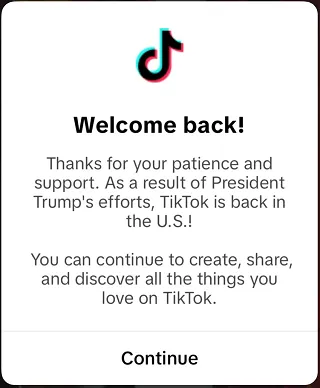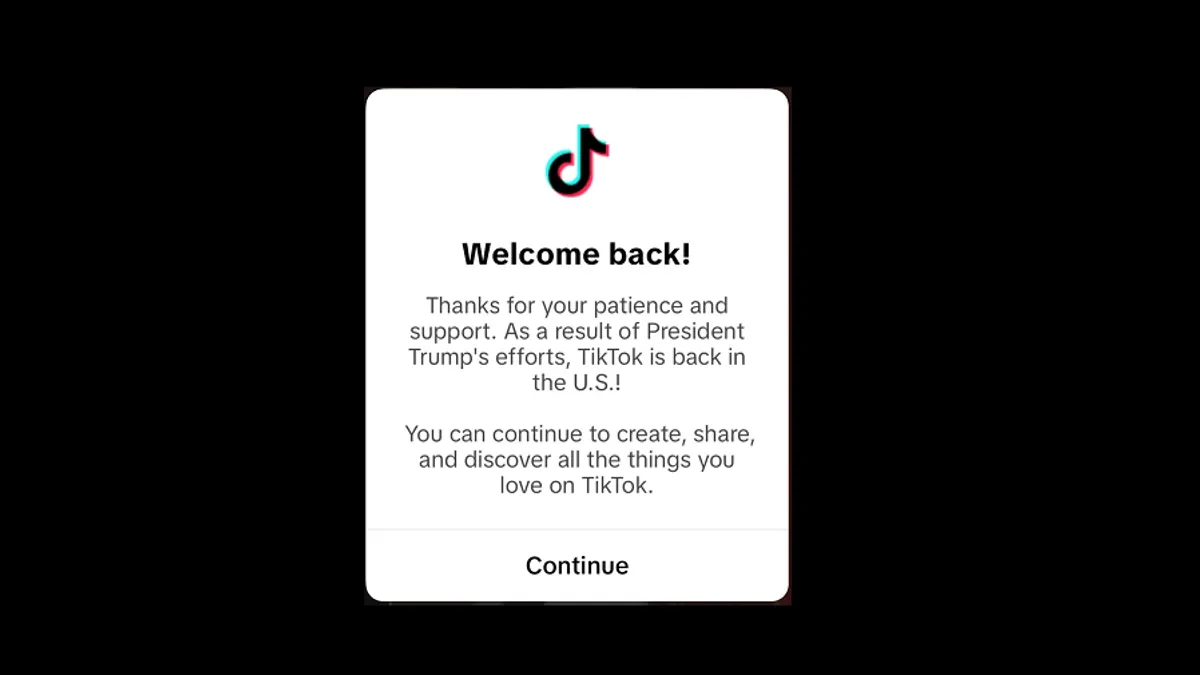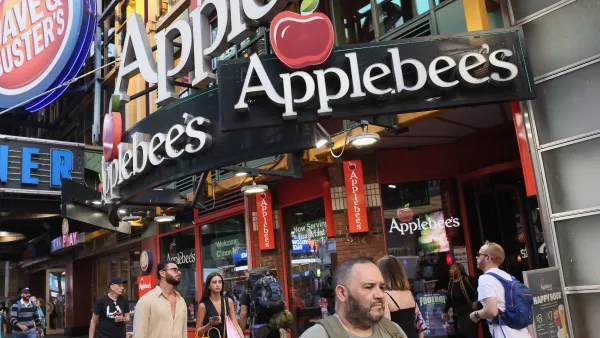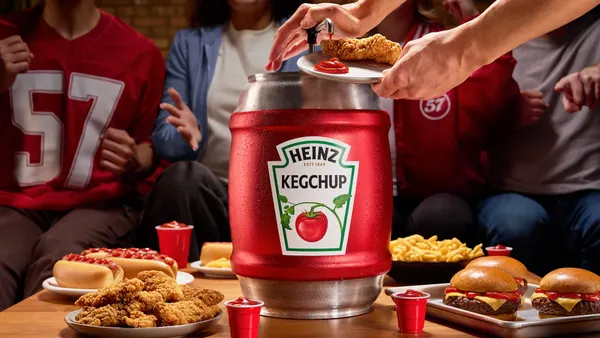“Sociable” is the latest commentary on important social media developments and trends from industry expert Andrew Hutchinson of Social Media Today.
So after months of senate hearings, months of legal challenges and years of cybersecurity investigations into the app, the TikTok ban in the U.S. was upheld for about 20 hours.
Today, TikTok has become operational again for most American users, after it was cut off late yesterday in accordance with the U.S. government sell-off bill.

President-elect Trump even gets a direct shout-out in the pop-up notification when Americans open the app, which he’ll no doubt love, as it frames him as the hero.
But to clarify, TikTok is not actually back. Well, it’s not business as usual, at least.
Over the weekend, the incoming Trump administration has been pushing the companies that facilitate TikTok in the U.S. (i.e. the app stores and the back-end providers), to keep supporting the app, in violation of the sell-off bill.
As per Trump:
“I’m asking companies not to let TikTok stay dark! I will issue an executive order on Monday to extend the period of time before the law’s prohibitions take effect, so that we can make a deal to protect our national security. The order will also confirm that there will be no liability for any company that helped keep TikTok from going dark before my order.”
Despite Trump’s assurances, Apple and Google have declined to allow TikTok back in their app stores, due to the risk of going against the legal wording of the bill, which could leave them liable for financial penalties.
Because as the document states:
“It shall be unlawful for an entity to distribute, maintain, or update (or enable the distribution, maintenance, or updating of) a foreign adversary controlled application. An entity that violates subsection (a) shall be subject to pay a civil penalty in an amount not to exceed the amount that results from multiplying $5,000 by the number of users.”
So it’s pretty clear, the bill is enforced by implementing civil penalties for the providers that enable such, which is what Trump’s asking them to ignore, and saying that he’ll protect them from if they do so.
And while Trump’s assurances haven’t been enough for the app stores, they are apparently enough for Oracle, which hosts TikTok’s data, and supports the everyday functionality of the app.
Which means that TikTok is functional again for most U.S. users who’ve already downloaded the app, but it’s not available to be downloaded by anybody else.
So TikTok’s not exactly back, but it is kind of, and people can use it again.
But it could become a legal minefield in retrospect, with the incoming president effectively advising these providers to violate the law for his own means. And as Trump isn’t actually president yet, he can’t actually offer such assurances, while there’s also a question as to whether he’ll actually be able to extend the time frame for TikTok to be sold to a U.S. owner in retrospect, after the bill has already been enacted.
It could become a massive headache for the Trump team, and for Oracle, which is relying on Trump to save it from prosecution. But Trump is confident that he can side-step the law, and also arrange a better deal, which will then keep TikTok available in the U.S., while still addressing the concerns raised in the Foreign Adversary Controlled Applications Act.
Though TikTok, and its Chinese owners, may not have been overly excited about this element in Trump’s discussion of the app:
“I would like the United States to have a 50% ownership position in a joint venture. By doing this, we save TikTok, keep it in good hands and allow it to stay up. Without U.S. approval, there is no TikTok. With our approval, it is worth hundreds of billions of dollars - maybe trillions.”
So Trump is looking at this more as a financial deal than a safety concern, which could end up seeing TikTok lose a significant portion of its local income, for the benefit of a Trump-approved U.S. beneficiary.
And if the U.S. government enacts such a bill, other nations will likely look to implement the same, to ostensibly protect local user data, but also glean direct financial, and taxation, benefit.
As such, it seems that we have some way to go yet before TikTok is “back” as such. But it is more likely, overall, that TikTokers won’t have to find an alternative solution.














